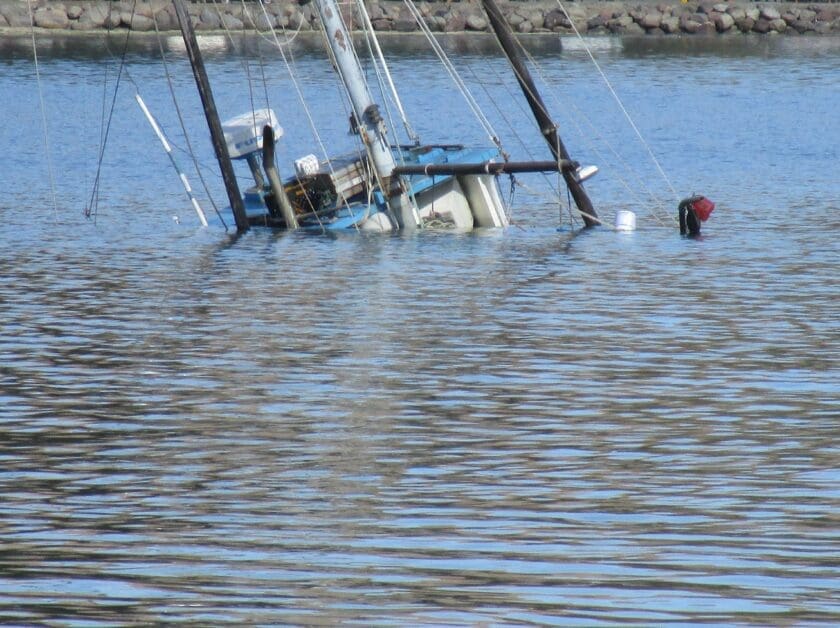What Role Does a Lawyer Play in a Boat Accident Case?
A boat accident lawyer is a person who helps you sort through the chaos when the waters become rough, literally. The lawyer’s job is not limited to paperwork; they are charged with protecting your rights, investigating what took place, and making sure you are not left holding a bill for someone else’s mistake.
Boat accident cases can become very complicated very quickly, whether there is a collision, a capsized fishing outing, or a runaway jet ski. Baton Rouge is known for food and entertainment, but the waterways of the capital city are just as busy as the roadways.
The Mississippi River and surrounding lakes attract all kinds of boating enthusiasts, from weekend fishermen to commercial operations, and with that many boats on the waters, there is a risk. That’s why many people turn to legal assistance after a boat accident in Baton Rouge.
Read on to find out how a lawyer for a boat accident helps you through every step of the lawsuit.
What a Lawyer Does in a Boat Accident Case
The first few days after a boating accident can be a haze. You have to go to the hospital, talk to the insurance company, and not know what to do. That’s where a lawyer for watercraft accidents comes in. The lawyer’s goal is to help you make sense of everything and come up with a clear legal plan.
1. Investigating What Happened
A lawyer starts by figuring out how and why the accident happened. Boat crashes can involve several factors—operator error, equipment failure, bad weather, or a mix of all three. Your lawyer gathers evidence from:
- Statements from witnesses and passengers
- Images or videos taken at the spot
- Records of maintenance and inspections
- Reports from the police and the Coast Guard
They might also talk to maritime experts or accident reconstruction professionals to get a better idea of what happened. The Department of Wildlife and Fisheries in Louisiana is often in charge of boating investigations, so your lawyer works with them to gain formal results.
2. Figuring Out Who Is Responsible
In boat accident cases, there is typically more than one party involved, such as the boat owner, the rental company, or even the manufacturer. It’s not always easy to figure out who is to blame. Louisiana Civil Code Article 2315 says that anyone who is careless and causes harm is accountable for damages. This is how your lawyer decides who should pay.
For instance, if the person driving the boat was drunk, your lawyer could link to Louisiana Revised Statute §34:851.4, which says it’s against the law to drive a boat when drunk. If you can show that you were drunk, it can make your case stronger and make it more likely that you will get full compensation.
3. Dealing With Insurance
After an accident, insurance companies respond quickly, but not necessarily in your favor. Adjusters may propose low settlements or try to shift blame. Your lawyer talks to the insurance companies for you, ensuring your statement isn’t used against you.
They also figure out your damages correctly, which include:
- Costs of medical care (now and in the future)
- Wages that were lost
- Fixing or replacing a boat
- Pain and mental distress
Without a lawyer, many people underestimate what their claim is worth. There’s no going back once you accept an offer. So, having legal guidance matters.
4. Filing a Lawsuit if Needed
If settlement talks fail, your lawyer prepares to take the case to court. Maritime and state laws overlap here, especially if the accident occurred on navigable waters like the Mississippi River. Federal maritime law may apply under the Jones Act (46 U.S. Code §30104) or other maritime liability rules.
Your attorney ensures the right laws are cited and deadlines are met. In Louisiana, most personal injury cases have a one-year statute of limitations, meaning you must file within a year of the accident. Missing that window can bar you from recovery entirely.
5. Standing Up for You
A good boat accident lawyer becomes your voice. They question witnesses, challenge inconsistent reports, and make sure your injuries and financial losses are recognized. The goal isn’t drama. It’s fairness.
Even if you share some fault, the comparative negligence rule allows you to recover damages reduced by your percentage of fault. That means you still have a path to compensation, even if the other side claims you were partly responsible.
6. Helping You Move Forward
A lawyer helps you get your life back on track outside of court. They work with medical professionals, handle invoices, and keep your case going so you can focus on getting better.
Boat accidents happen quickly, but the effects can continue for months. Having someone who knows both the law and the water is more than simply legal help; it also provides you with peace of mind.
In a Nutshell
Here’s a quick list of what a boat accident lawyer can do for you:
- Looks into the reason by collecting records, images, and witness statements to find out what really happened.
- Finds out who’s to blame and uses Louisiana and marine laws to hold the proper people accountable.
- Handles insurance providers to shield you from lowball offers and make sure your claim includes all of your losses.
- Files litigation as necessary and keeps track of court filings and deadlines according to state and federal law.
- Fights for fair pay—makes your argument plain, even if you are partly to blame.
- Helps you get better by helping with medical bills, communication, and what to do next following the accident.















